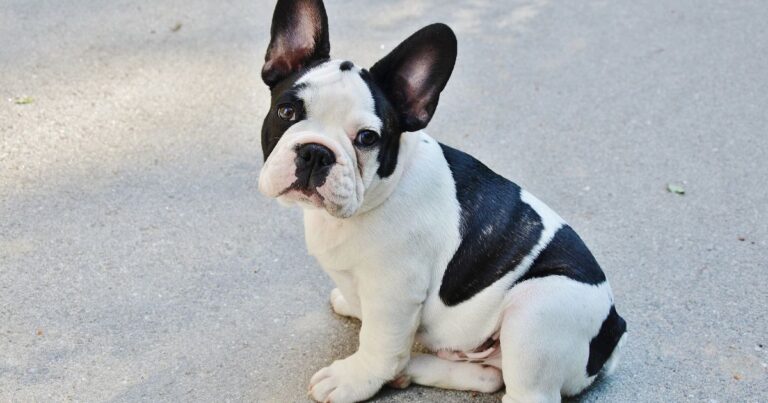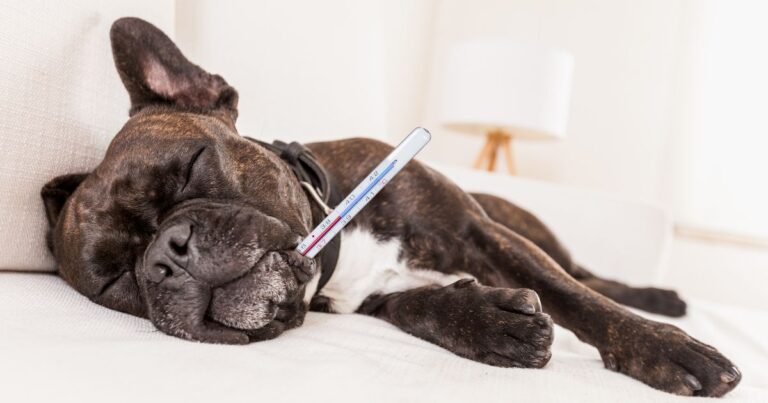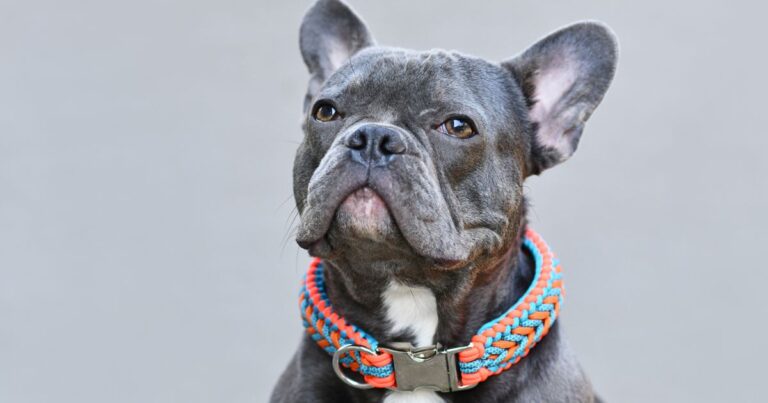Can Frenchies Breed Naturally?
Table of Contents
Introduction
“Can Frenchies breed naturally?” This question often pops up in the minds of French Bulldog enthusiasts and prospective owners. As we delve into the captivating world of French Bulldog breeding, we’ll uncover the truth behind this intriguing question.
Understanding French Bulldogs
French Bulldogs, affectionately known as Frenchies, are a breed adored for their unique physical characteristics and charming personalities. But when it comes to their ability to mate naturally, things get a bit complicated.
French Bulldogs are a brachycephalic breed, meaning they have a short nose and flat face. This gives them their distinctive appearance, but it also means they can be prone to certain health issues, such as breathing difficulties and overheating. They’re also known for their stubbornness, which can make training a bit of a challenge. However, with patience and consistency, Frenchies can learn to follow commands and can even excel in obedience training. They’re a small breed, but they have a big personality, and they’re known for their affectionate and playful nature.
Can Frenchies Breed Naturally?
Contrary to what some might think, French Bulldogs face significant challenges when it comes to natural breeding. Their unique physical characteristics, while endearing, play a significant role in their ability to mate naturally.
French Bulldogs are known for their large heads, small hips, and overall stout structure. These traits, while part of their charm, can make natural mating difficult. The male often has trouble mounting the female due to their short stature and bulky build. Even if they manage to mate, the female Frenchie may have difficulty carrying a pregnancy to term due to her small size.

The Role of Physical Characteristics in Breeding
The physical traits of French Bulldogs, while endearing, play a significant role in their ability to mate naturally. Their stout build and small hips can make natural mating a challenge. Additionally, the large size of the puppies’ heads can lead to complications during birth, often necessitating a C-section.
| French Bulldog Breeding Aspect | Description |
|---|---|
| Natural Breeding | Often difficult due to physical characteristics |
| Artificial Insemination | Commonly used to ensure safe breeding |
| Health Concerns | Prone to certain health issues, including brachycephalic syndrome and hip dysplasia |
| Breeding Frequency | Should not be bred too frequently; recommended no more than one litter per year |
| Importance of Responsible Breeding | Crucial to ensure the health and well-being of the dogs |
The Reality of Artificial Insemination
Given the difficulties associated with natural breeding, artificial insemination is often used in the breeding process of French Bulldogs. This process involves collecting sperm from a male dog and manually inserting it into the female. While this may seem unnatural, it is a common practice in the breeding of French Bulldogs and is often necessary to ensure the safety of both the mother and her puppies.
Artificial insemination isn’t as scary as it sounds, trust me! It’s a bit like a doggy version of online dating – it’s all about making the right match without the usual meet-cute at the park. The process is carried out by a vet or a trained breeder, and it’s all about ensuring our beloved Frenchies can have their little bundles of joy safely. It’s a bit technical, but it’s done with the utmost care and love for our four-legged friends.
Now, you might be thinking, “But Serena, isn’t this a bit too… clinical?” I get it, it’s not exactly the romantic doggy love story we’re used to seeing in movies. But remember, the health and safety of our Frenchies come first. And if that means swapping candlelit dinners for a vet’s office, then so be it! After all, the end result is the same – adorable Frenchie puppies that will melt your heart!
The Risks of Birth Defects
Birth defects and genetic defects are a serious concern when breeding French Bulldogs. Due to their unique physical characteristics, French Bulldogs are prone to certain health issues. These include brachycephalic syndrome, hip dysplasia, and various skin conditions. Additionally, the breed’s limited gene pool can increase the risk of inherited disorders. This is why it’s crucial for any responsible breeder to conduct health screenings and genetic testing before breeding their dogs.
But it’s not all doom and gloom. With the right care and attention, many of these health issues can be managed effectively. For instance, regular vet check-ups can help catch potential problems early, and a balanced diet can keep your Frenchie in tip-top shape. Plus, advancements in veterinary medicine are making it easier to treat and even prevent some of these conditions.
However, it’s important to remember that not all health issues can be detected or prevented. Sometimes, despite a breeder’s best efforts, a Frenchie may still be born with certain defects. This is why it’s so important to choose a reputable breeder who prioritizes the health of their dogs over profit. After all, a healthy Frenchie is a happy Frenchie!
The Breeding Process
The breeding process for French Bulldogs is a fascinating blend of science and nature. It’s not as simple as letting two dogs play in a park and hoping for puppies. Instead, it’s a meticulously planned process that starts with choosing the right pair. The male and female Frenchies chosen for breeding must be healthy, with no serious genetic disorders that could be passed on to the puppies. This often involves genetic testing and thorough veterinary check-ups.
Once the perfect pair is selected, the next step is artificial insemination. This is where things get a bit technical. Unlike many other dog breeds, Frenchies often require a little help in the mating department due to their unique body structure. The insemination process must be done by a professional to ensure success. After insemination, the female Frenchie’s health is closely monitored. Regular vet visits and ultrasounds are crucial to ensure the pregnancy is progressing well. And when it’s time for the puppies to be born, a C-section is usually performed to ensure the safety of the mom and her pups. It’s a complex process, but the result – a litter of adorable Frenchie puppies – is definitely worth it!
Breeding Frequency: How Often Can Frenchies Breed?
Breeding frequency is another important aspect to consider when discussing whether Frenchies can breed naturally. French Bulldogs, like all dogs, should not be bred too frequently. It’s generally recommended that female French Bulldogs have no more than one litter per year, with a maximum of three litters in their lifetime. This gives the mother ample time torecover between pregnancies and ensures she remains healthy.
Here are some key points to remember about French Bulldog breeding:
- French Bulldogs often have difficulty breeding naturally due to their physical characteristics.
- Artificial insemination is commonly used in the breeding process.
- French Bulldogs are prone to certain health issues, making health screenings and genetic testing crucial.
- Responsible breeding practices are essential to ensure the health and well-being of French Bulldogs.
The Importance of a Responsible Breeder
Choosing a responsible breeder is crucial when considering a French Bulldog. A responsible breeder prioritizes the health and well-being of their dogs over profit. They conduct necessary health screenings, provide appropriate care for their dogs, and ensure their dogs are bred in a safe and ethical manner. They also provide ongoing support to new owners and are committed to the lifelong well-being of their puppies.
Conclusion
So, can Frenchies breed naturally? The answer is complex. While it’s technically possible, the unique physical characteristics of French Bulldogs make natural breeding difficult and often risky. As such, artificial insemination and C-sections are commonly used in the breeding process to ensure the safety of both the mother and her puppies. Understanding the challenges and considerations involved in French Bulldog breeding is essential for any Frenchie lover.
Call to Action
Interested in learning more about French Bulldogs? Stay tuned for more insights and stories about these adorable companions. If you’re considering adding a Frenchie to your family, remember to choose a responsible breeder and be prepared for the unique challenges and joys that come with owning this wonderful breed.
For more information on French Bulldog breed characteristics, check out my Breed Characteristics category. You can also read my latest post in this series, Are Frenchies born with tails?, and French Bulldog Behavior Problems, for more fascinating insights into this unique breed.
And don’t forget to visit my main hub, Breed Characteristics of French Bulldogs, for a comprehensive look at everything you need to know about French Bulldogs. Whether you’re a seasoned Frenchie owner or just starting your journey, there’s always something new to learn about these charming companions.
Remember, while French Bulldogs are a beloved breed known for their friendly and companionable nature, potential owners should be aware of the ethical considerations and potential health issues associated with their breeding.
Frequently Asked Questions
Can Frenchies breed naturally?
Due to their unique physical structure, particularly the size of the hips and head, French Bulldogs are unable to mate and breed naturally in most cases. They typically require human intervention through artificial insemination and C-sections for birthing.
Why can’t French Bulldogs breed naturally?
French Bulldogs often cannot breed naturally due to their narrow hips, which makes mounting difficult. Additionally, females often have small birth canals and cannot deliver puppies naturally, necessitating C-sections.
What are the risks associated with French Bulldog breeding?
Breeding French Bulldogs carries risks of birth defects and genetic issues due to the breed’s physical characteristics. It’s crucial to work with a responsible breeder who prioritizes health over physical traits.
How often can French Bulldogs breed?
Responsible breeders typically allow female French Bulldogs to breed once they are of appropriate age (generally around two years old) and then only once per heat cycle, with ample rest between litters to maintain the health of the mother and puppies.
What is artificial insemination?
Artificial insemination is a process where semen is collected from a male dog and then physically inserted into the female for the purpose of conception. This method is commonly used in French Bulldog breeding due to their physical limitations.
What is the role of a responsible breeder in French Bulldog breeding?
A responsible breeder prioritizes the health and well-being of the dogs over all else. They ensure ethical breeding practices, screen for genetic issues, provide appropriate medical care, and work to breed dogs that are as healthy as possible.






